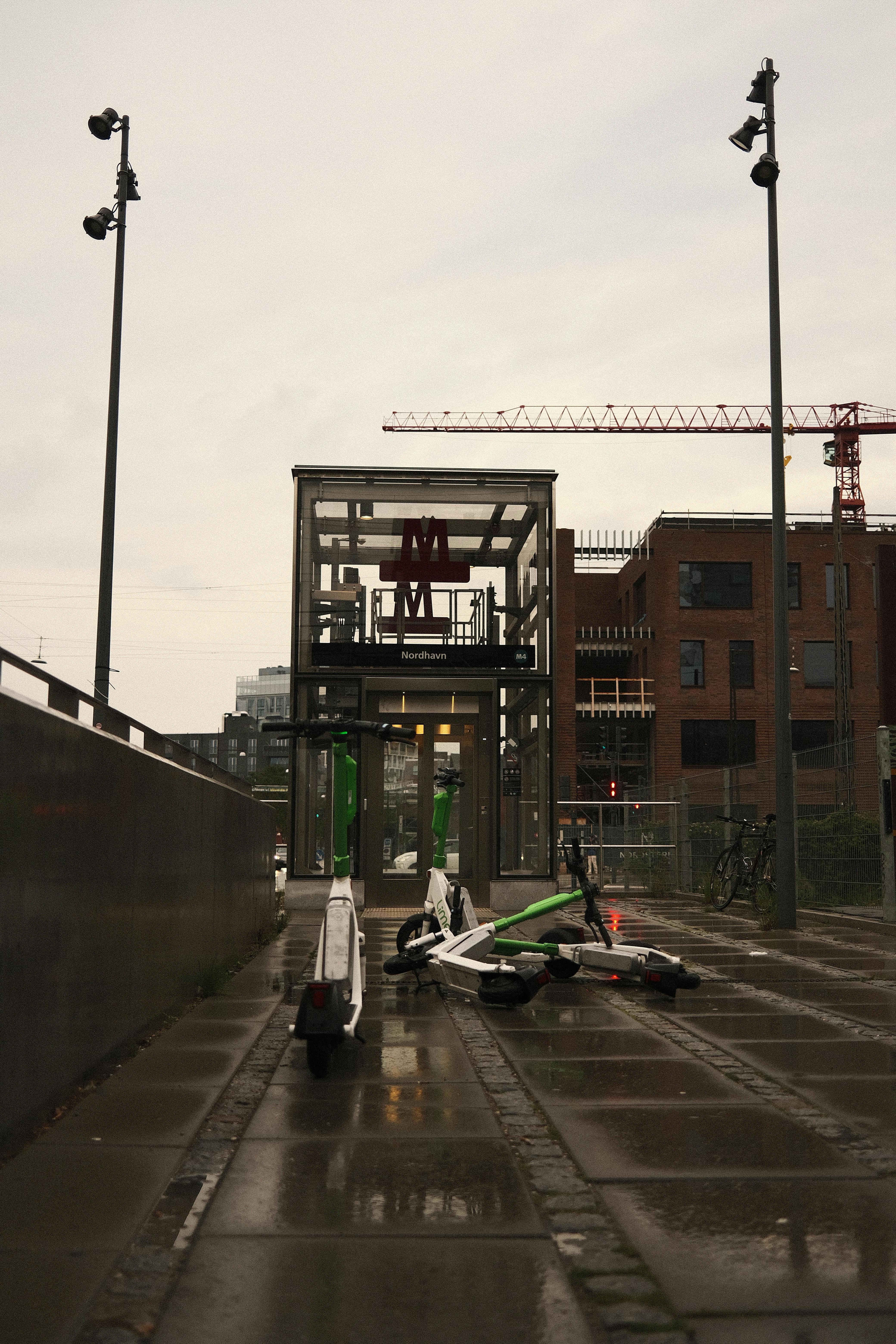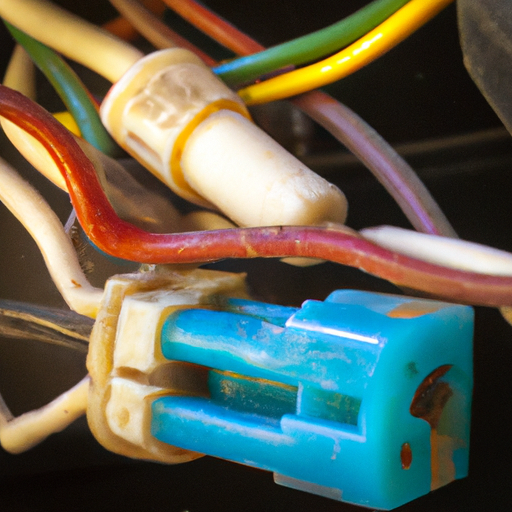If you’re a Jeep owner considering installing an aftermarket remote starter, you may want to think twice. Recent reports have revealed a concerning trend of electrical problems arising in Jeeps after the installation of these remote starters. Despite the convenience they offer, these aftermarket devices seem to be causing a host of issues for Jeep owners. From electrical malfunctions to battery drainage, this article explores the potential risks associated with aftermarket remote starters and provides valuable insights for anyone considering installing one in their Jeep.
Common Electrical Problems Caused by Aftermarket Remote Starter
Short Circuits
Short circuits occur when a low-resistance pathway is created between two electrical conductors, causing an excessive flow of current. Installing an aftermarket remote starter in your Jeep can potentially lead to short circuits if not done correctly. The wiring connections may be improperly secured or damaged during installation, resulting in a short circuit. Short circuits can lead to overheating, electrical fires, or damage to other electrical components in your vehicle.
Battery Drainage
Another common electrical problem caused by aftermarket remote starters is battery drainage. These systems consume power even when your Jeep is not in use, which can lead to constant battery drain. If the remote starter is not properly installed or if there are compatibility issues with your Jeep’s electrical system, it may drain your battery at a higher rate than usual. This can leave you stranded with a dead battery and in need of a jump-start.
Malfunctioning Electrical Components
Aftermarket remote starters can also cause malfunctioning electrical components in your Jeep. If the product or wiring is of poor quality, it can result in interference with your vehicle’s electrical system. This interference can disrupt the proper functioning of various components, such as the power windows, locks, or even the engine management system. Malfunctioning electrical components can lead to inconvenience, safety hazards, and costly repairs.
Blown Fuses
Installing an aftermarket remote starter that is incorrectly wired or incompatible with your Jeep can cause blown fuses. Fuses are designed to protect electrical circuits from overloading by breaking the circuit when excess current flows through it. However, if the remote starter draws too much current or causes a short circuit, it can lead to blown fuses. Blown fuses can result in the loss of power to specific electrical systems or even the entire vehicle, requiring fuse replacement and potential troubleshooting.
Impact on Jeep’s Electrical System
Dimming or Flickering Headlights
One of the noticeable impacts on your Jeep’s electrical system after installing an aftermarket remote starter is dimming or flickering headlights. This occurs due to the increased power demand when starting the engine. The remote starter may draw a significant amount of current to initiate the engine, causing a temporary drop in voltage available for other electrical components. As a result, your headlights may dim or flicker until the engine is fully started.
Electrical System Failure
In some cases, the installation of an aftermarket remote starter can lead to overall electrical system failure in your Jeep. If the wiring is not properly connected or if the remote starter interferes with the vehicle’s electrical signals, it can cause a complete shutdown of the electrical system. This means that none of the electrical components, including lights, gauges, or entertainment systems, will function correctly, leaving you unable to operate your Jeep.
Intermittent Power Loss
Intermittent power loss is another potential impact of an aftermarket remote starter on your Jeep’s electrical system. The installation may result in poor connections or wiring compatibility issues, leading to intermittent power loss to certain components. You may experience sudden cut-offs of power to various systems, such as the audio system, power windows, or even the engine itself. These intermittent power losses can be frustrating and may require a thorough inspection to identify and resolve the underlying issues.

Causes of Electrical Problems
Incorrect Installation
The primary cause of electrical problems resulting from aftermarket remote starters is incorrect installation. It is crucial to have the remote starter installed by a qualified professional who understands the intricacies of your Jeep’s electrical system. If the installation is not performed properly, it can lead to wiring errors, loose connections, or other issues that can cause electrical problems. Always choose an experienced installer to ensure a proper and secure installation.
Incompatible Wiring
Using incompatible wiring during the installation of an aftermarket remote starter can also cause electrical problems. The wiring used should match the specifications and requirements of your Jeep. If the wiring is not compatible or does not match the existing electrical system, it can lead to issues such as short circuits, blown fuses, or malfunctioning components. It is essential to use wiring that is specifically designed for your Jeep model to minimize the risk of electrical problems.
Poor Quality Products
The quality of the aftermarket remote starter can significantly impact its compatibility and performance with your Jeep. Choosing poor quality or cheap products can increase the chances of electrical problems. Low-quality remote starters may not have the necessary safety features or proper wiring connections, which can lead to various issues. Investing in a reputable brand and high-quality remote starter can help minimize the risk of electrical problems.
Symptoms of Electrical Problems
Difficulty Starting the Engine
One of the common symptoms of electrical problems caused by an aftermarket remote starter is difficulty starting the engine. If there are wiring issues or compatibility problems, it can disrupt the startup sequence of your Jeep’s engine. You may experience delays, hesitations, or complete failure when trying to start your vehicle. It is important not to force the ignition switch or repeatedly attempt to start the engine, as this can exacerbate the underlying electrical issues.
Unresponsive Key Fob
An unresponsive key fob can also be a sign of electrical problems related to an aftermarket remote starter. If the remote starter is not properly connected or if there are compatibility issues, it can prevent the key fob from communicating with the vehicle’s electrical system. As a result, pressing the buttons on the key fob may have no effect on the remote start or other functions. It is important to address this issue promptly to avoid further complications.
Dashboard Warning Lights
Electrical problems caused by aftermarket remote starters can trigger dashboard warning lights in your Jeep. These warning lights serve as indicators of potential issues with various electrical systems in your vehicle. If you notice warning lights, such as the battery light, ABS light, or check engine light, illuminating on your dashboard after installing a remote starter, it is recommended to have your vehicle inspected by a qualified technician to identify and resolve the underlying electrical problem.
Strange Noises or Odors
Electrical problems can manifest in the form of strange noises or odors within your Jeep. Faulty wiring or malfunctioning electrical components can create buzzing, clicking, or hissing noises. Additionally, overheating or damaged electrical systems may emit unusual odors, such as burning or melting smells. If you notice any strange noises or odors after installing an aftermarket remote starter, it is essential to have it inspected immediately to prevent further damage or potential safety hazards.

Short Circuits
Definition of a Short Circuit
A short circuit refers to the unintended flow of electrical current through a low-resistance pathway, bypassing the load or normal circuit. It occurs when a conductive object or wire makes contact with a power source or ground before it completes its intended circuit path. In the case of an aftermarket remote starter, a short circuit can occur if the wiring is incorrectly connected or damaged during installation.
Effects on the Electrical System
Short circuits can have serious effects on your Jeep’s electrical system. The excessive flow of current in a short circuit can lead to overheating, potentially damaging the surrounding components or even causing electrical fires. It can also result in the loss of power to specific electrical systems or the entire vehicle. Short circuits need to be addressed promptly to prevent further damage and ensure the safety and proper functioning of your Jeep’s electrical system.
Common Causes
The common causes of short circuits resulting from an aftermarket remote starter installation include incorrect wiring connections, damaged wires, or improper insulation. If the wiring connections are not securely fastened or if the insulation is compromised, it can lead to contact between different electrical components, resulting in a short circuit. Careful attention to wiring details and ensuring proper insulation is essential to avoid short circuits and their potential consequences.
Battery Drainage
Excessive Power Usage
Aftermarket remote starters consume power even when your Jeep is not in use, which can result in excessive power usage. If the remote starter is not installed correctly or if it does not properly integrate with your Jeep’s electrical system, it may draw more power than necessary, leading to battery drainage. This continuous power usage can quickly drain the battery, leaving you with a vehicle that won’t start.
Interference with Jeep’s Battery
An aftermarket remote starter that is incompatible with your Jeep’s electrical system can interfere with the battery’s charging process. If the remote starter draws excessive power or disrupts the battery’s proper charging cycles, it can lead to reduced battery performance or even premature battery failure. It is crucial to choose a remote starter that is specifically designed for your Jeep and compatible with its electrical system to avoid battery-related issues.
Signs of Battery Drainage
There are several signs that indicate battery drainage in your Jeep. These may include a slow or hesitant engine start, dimming interior lights, weak power to electrical components like power windows or locks, or a completely dead battery that requires jump-starting. If you experience any of these signs after installing an aftermarket remote starter, it is important to have your battery tested and the electrical system inspected to identify and resolve the underlying drainage issue.

Malfunctioning Electrical Components
Effects on Vehicle’s Performance
Malfunctioning electrical components due to an aftermarket remote starter can significantly impact your Jeep’s performance. The interference caused by poorly installed or low-quality remote starters can disrupt the signals between electrical components, leading to erratic behavior or complete failure of critical systems. For example, power windows may stop working, the engine management system may have issues, or the electrical circuits controlling various functions may malfunction. These malfunctions can compromise the overall performance and functionality of your Jeep.
Common Problematic Components
Several electrical components may become problematic after the installation of an aftermarket remote starter. Power windows, door locks, and even the engine control module (ECM) can be affected by interference or incorrect wiring during installation. Other components that may experience issues include the ignition system, fuel pump, or even the audio system. Identifying the specific malfunctioning components is essential for accurate troubleshooting and resolution of the electrical problems.
Blown Fuses
Causes of Fuse Failure
Blown fuses can occur as a result of an aftermarket remote starter installation that includes incorrect wiring or incompatible components. If the remote starter draws too much current or causes a short circuit, the fuse in the affected circuit may blow as a safeguard. Incorrect wiring connections or overloading the circuit can also lead to blown fuses. Blown fuses are a common issue when the electrical demands of the remote starter exceed the capacity of the vehicle’s electrical system.
Effects on Jeep’s Electrical System
When a fuse blows, it disrupts the electrical circuit it protects, resulting in a loss of power to that specific system or component. In the case of a blown fuse caused by an aftermarket remote starter, it can lead to the loss of power to essential components, such as ignition systems, fuel pumps, or even critical safety systems. This loss of power can disable the affected systems, leaving you unable to start your Jeep or operate certain functions.

Dimming or Flickering Headlights
Dimming Lights While Starting
Dimming or flickering headlights are common when starting your Jeep with an aftermarket remote starter. When initiating the remote start sequence, there is a sudden surge of electrical current drawn by the starter motor to crank the engine. This surge can cause a temporary drop in voltage available for other electrical components, resulting in the dimming or flickering of headlights. Once the engine is fully started, the headlight brightness should stabilize and return to normal.
Issues with Electrical Power Delivery
An improperly installed or incompatible remote starter can result in issues with the delivery of electrical power in your Jeep. If the wiring connections are loose, damaged, or not properly secured, it can interrupt the smooth flow of electrical current, leading to voltage drops and fluctuations. These interruptions in electrical power delivery can cause the headlights to dim or flicker, indicating an underlying problem with the electrical system.
Alternator Problems
Dimming or flickering headlights may also be indicative of alternator problems in your Jeep. The installation of an aftermarket remote starter can put extra strain on the alternator, which is responsible for charging the battery and providing power to the electrical systems while the engine is running. If the alternator fails to supply a consistent and sufficient amount of power, it can result in dimming or flickering headlights. A faulty alternator may require repair or replacement to ensure proper charging and power delivery to the electrical components.
Strange Noises or Odors
Unusual Audible or Smell Indications
After installing an aftermarket remote starter, you may notice unusual audible or smell indications that could be attributed to electrical problems. Faulty wiring connections or malfunctioning components can create buzzing, clicking, or hissing noises. Additionally, overheating or damaged electrical systems may emit unusual odors, such as burning or melting smells. It is important not to disregard these indications, as they could be signs of potential electrical problems that require immediate attention.
Link to Electrical Problems
Strange noises or odors within your Jeep can be directly linked to electrical problems caused by the aftermarket remote starter. The wiring connections or components affected by the installation may be subjected to excessive heat or damage, resulting in unusual audible indications. Additionally, short circuits or other electrical issues can cause electrical components to overheat, leading to the emission of unusual odors. Identifying and addressing these signs promptly is crucial to prevent further damage and ensure the safety and functionality of your Jeep’s electrical system.
With proper installation, compatibility, and high-quality products, the common electrical problems caused by aftermarket remote starters can be minimized. It is important to consult with professionals and choose reputable brands to ensure a seamless integration of the remote starter with your Jeep’s electrical system. Regular inspections and maintenance can also help detect and address any potential electrical issues, ensuring a reliable and efficient vehicle for years to come.

